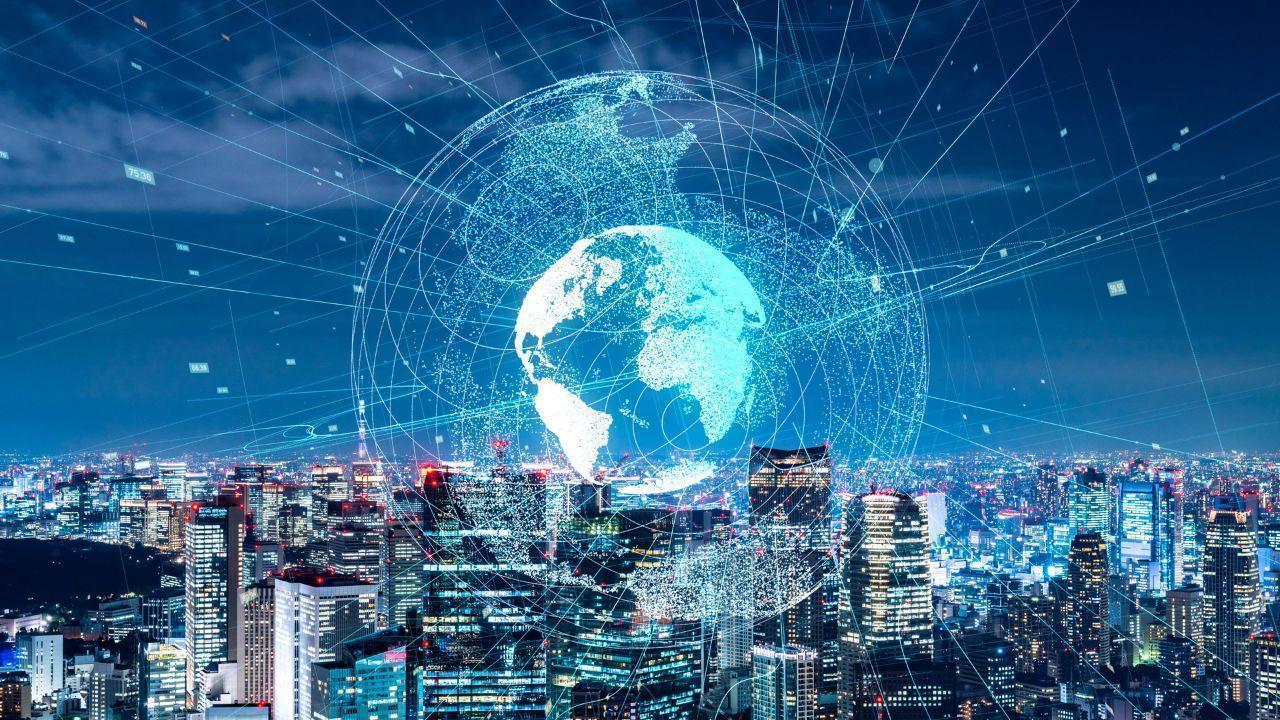
Post by : Vansh
What Are Smart Cities and Why Do They Matter Today
International trade has long been a cornerstone of global economic growth, connecting countries and markets across continents. Today, the role of technology in transforming international trade is more significant than ever before. With the rapid advancement of digital tools, automation, and communication technologies, the way goods and services cross borders is evolving at an unprecedented pace.
This transformation is not only improving efficiency but also creating new opportunities for businesses of all sizes worldwide. In this article, we will explore how technology is reshaping international trade, making it faster, more transparent, and more accessible to a broader range of participants.
Digital Platforms and E-Commerce Revolutionizing Global Trade
One of the most visible impacts of the role of technology in transforming international trade is the rise of digital platforms and e-commerce. Online marketplaces like Amazon, Alibaba, and Shopify have enabled small and medium-sized enterprises (SMEs) to reach international customers without the need for physical stores or intermediaries.
E-commerce platforms reduce traditional barriers such as geographic distance and costly logistics. Businesses can now sell products across borders with relative ease, tapping into global demand. This democratization of trade has expanded opportunities for entrepreneurs worldwide, fostering economic inclusion and innovation.
Blockchain Technology Enhancing Transparency and Security
Blockchain technology has emerged as a game-changer in the role of technology in transforming international trade by providing secure, transparent, and tamper-proof records of transactions. Supply chains, which often involve multiple parties across various countries, benefit greatly from blockchain’s ability to track products from origin to destination.
With blockchain, all participants in a trade deal can verify information in real time, reducing fraud, errors, and disputes. This increased transparency also improves regulatory compliance and speeds up customs clearance, making international trade smoother and more trustworthy.
Automation and AI Optimizing Logistics and Supply Chains
Logistics and supply chain management are critical components of international trade. Here, the role of technology in transforming international trade is evident in the use of automation and artificial intelligence (AI). Automated warehouses, smart inventory systems, and AI-powered route optimization tools enhance the speed and efficiency of moving goods globally.
AI algorithms analyze data to predict demand fluctuations, detect bottlenecks, and improve delivery schedules. This reduces costs, minimizes delays, and helps companies adapt quickly to changing market conditions. As a result, businesses can offer better service to customers worldwide while maintaining competitive pricing.
The Rise of Digital Payments and Fintech Solutions
International trade relies heavily on financial transactions, and technology has revolutionized this area as well. Digital payment systems and fintech innovations simplify cross-border payments by reducing transaction times and costs.
Mobile wallets, cryptocurrency, and real-time payment platforms enable faster and more secure transfers. For SMEs and startups especially, access to affordable and efficient payment solutions has lowered entry barriers to international markets. This financial inclusion is a vital part of the role of technology in transforming international trade.
Challenges and the Future Outlook
While technology offers numerous benefits, it also presents challenges in international trade. Cybersecurity threats, digital divide issues, and regulatory hurdles require ongoing attention. Governments and businesses must collaborate to create frameworks that promote innovation while protecting data and ensuring fair competition.
Looking ahead, emerging technologies such as the Internet of Things (IoT), 5G connectivity, and advanced data analytics will further deepen the transformation. These innovations will enable even greater efficiency, real-time tracking, and smarter decision-making in global trade.
Disclaimer:
This article has been published by MiddleEastBulletin purely for informational and educational purposes. While every effort has been made to ensure accuracy, the content does not constitute professional advice. Readers are encouraged to consult with urban planning or technology experts before making any decisions based on smart city developments or related technologies.










Telangana Women Tragically Killed in California Car Accident, Families Request Assistance
Two Telangana women in the US die in a tragic car crash, prompting families to seek government suppo

Dhurandhar Achieves Remarkable Success, Surpassing ₹1100 Cr Worldwide
Ranveer Singh's Dhurandhar continues its box office dominance, crossing ₹1100 crore globally and sur

Asian Markets Climb as Dollar Weakens and Silver Surpasses $80 on Rate Cut Anticipation
Asian equities hit six-week highs while silver crosses $80, buoyed by expectations of Federal Reserv

Kathmandu Mayor Balendra Shah Aligns with Rastriya Swatantra Party Ahead of Upcoming Polls
Mayor Balendra Shah partners with Rastriya Swatantra Party to challenge Nepal's entrenched political

Independent Review of Law Enforcement Initiated in Australia Following Bondi Tragedy
In response to the Bondi shooting, Australia announces an independent review of law enforcement to e

Jaideep Ahlawat Steps in for Akshaye Khanna in Drishyam 3
Akshaye Khanna exits Drishyam 3 over a wig dispute, with Jaideep Ahlawat stepping in as his replacem